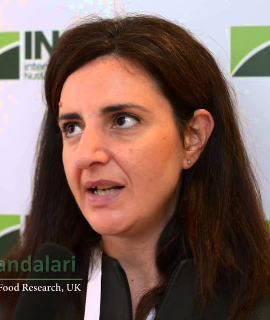Title : The in vitro Potential of Novel Carbonic Anhydrase Inhibitors against Candida spp
Abstract:
Given the increased antimicrobial resistance, global effort is currently focused on the identification of novel compounds, both of natural and chemical origin. In immunocompetent subjects, Candida spp. are responsible for mucosal infections, including thrush and vaginitis, which could lead to invasive candidiasis in immunocompromised patients, especially with more species becoming multi-drug resistant. It is well-known that Candida spp. employ b-carbonic anhydrases (b-CAs) to accomplish the reversible hydration of CO2, an essential process to guarantee the survival of these pathogenic yeasts. Furthermore, small molecules bearing the sulfonamide moiety as zinc-binding group (ZBG) might be valuable agents reducing yeast virulence throughout the b-CA inhibition.
In this study we screened an in-house library of arylsulfonamides against a range of Candida spp. strains: Candida albicans ATCC 10231, Candida parapsilosis ATCC 22019, Candida glabrata DSMZ 70614, three clinical isolates of Candida albicans, two clinical isolates of Candida glabrata, two clinical isolates of Candida parapsilosis. The screening was performed by the determination of the Minimum Inhibitory Concentration (MIC).
Results showed a fungistatic activity of arylsulfonamides against all tested strains with the exception of Candida glabrata DSM 70614 and one clinical strain of Candida glabrata at concentrations ranging between 0.125 and 1 mg/mL. A fungicidal effect was detected against Candida glabrata strain 33 e Candida albicans strain 16 at the concentration of 0.5mg/ml. The structural-function relationship has been explored through the synthesis of a series of compounds bearing a different aromatic tail as well as through the variation in the linking group. In order to confirm the role played by ZBG, an analog compound lacking the sulfonamide moiety was tested.
These data could help provide novel therapeutics for topical use to treat fungal infections and increase the potential effectiveness of the association between novel compounds and commercial antifungals in order to combat drug resistance.
What will audience learn from your presentation?
- Candida spp. are responsible for mucosal infections, including thrush and vaginitis, which could lead to invasive candidiasis in immunocompromised patients.
- Carbonic anhydrase inhibitors are active against Candida spp.
- Novel synthetic compounds could therefore be used to treat drug resistance.


